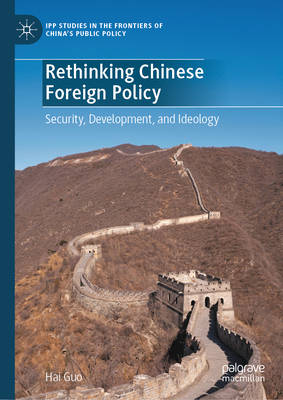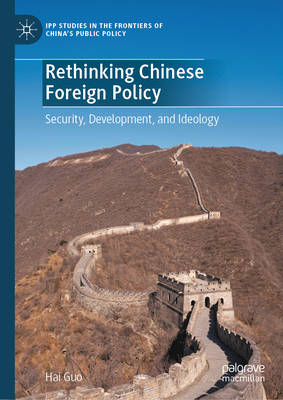
- Afhalen na 1 uur in een winkel met voorraad
- Gratis thuislevering in België vanaf € 30
- Ruim aanbod met 7 miljoen producten
- Afhalen na 1 uur in een winkel met voorraad
- Gratis thuislevering in België vanaf € 30
- Ruim aanbod met 7 miljoen producten
Omschrijving
This book offers a sweeping yet incisive account of how China has navigated world politics from the late Qing dynasty to the Xi Jinping era. Moving beyond single-factor explanations, the book reveals that China's strategic choices have always been shaped by a dynamic interplay of three factors: security, development, and ideology. Through historical cases and contemporary analysis, it explains how the Chinese political leadership understood their interests, and reveals that ideological factors XE "ideology" played a more decisive role in the making of Chinese foreign policy when China was economically and institutionally isolated from the international society, whereas deep engagement and economic interdependency reinforced diplomatic pragmatism. It concludes that China's foreign policy under President Xi Jinping remains fundamentally anchored in security and development imperatives, and is therefore more pragmatic than widely assumed. This book will be of particular interest to scholars and students of international relations, Chinese politics, diplomatic history, and the evolving dynamics of great-power competition.
Specificaties
Betrokkenen
- Auteur(s):
- Uitgeverij:
Inhoud
- Aantal bladzijden:
- 204
- Taal:
- Engels
- Reeks:
Eigenschappen
- Productcode (EAN):
- 9789819553730
- Verschijningsdatum:
- 25/03/2026
- Uitvoering:
- Hardcover
- Formaat:
- Genaaid
- Afmetingen:
- 148 mm x 210 mm

Alleen bij Standaard Boekhandel
Beoordelingen
We publiceren alleen reviews die voldoen aan de voorwaarden voor reviews. Bekijk onze voorwaarden voor reviews.







